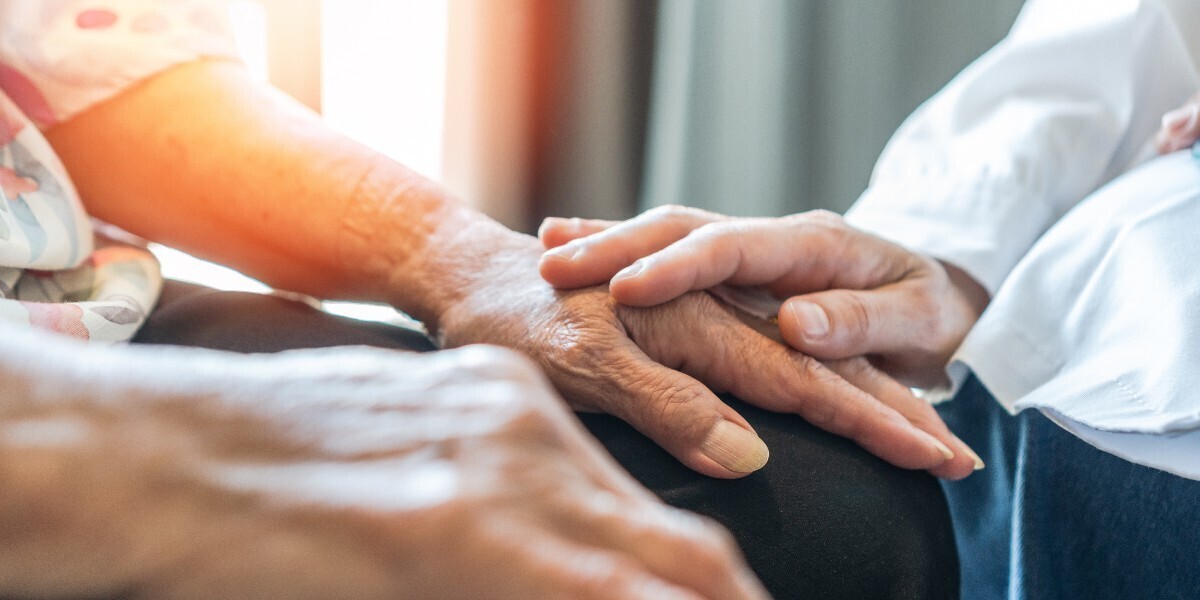
Palliative care is a specialist support service where home-based care teams provide personalised, structured assistance in a person's own home when they have been diagnosed with a terminal condition or are living with a progressive or degenerative illness that has little likelihood of entering into remission.
Deciding what to do when you, a loved one or a partner has been given such a prognosis is complex and emotional – but numerous studies have found that palliative home care is profoundly beneficial for the individual, their family, and the local community.
This guide from the home care specialists at Guardian Angel Carers, a multi-award-winning nationwide group that operates on a values-based care system, clarifies the benefits of this type of care and why it adds value to families going through an unimaginably difficult time.
Palliative Home Care Services Explained
Many families are unsure how palliative care works or find the distinction between palliative and end-of-life care confusing. In many cases, these two forms of home-based support go hand in hand but can also be the best way to support the independence, welfare and dignity of a person with a life-limiting condition in very different circumstances. As an overview:
- Palliative care can indeed be relevant for people who are living with a terminal condition but is often a long-term support service that adapts and adjusts according to the person's needs. It is focused solely on pain relief, comfort, quality of life, and maximising the effect of treatments or therapies to keep the person as well as possible for longer.
- End-of-life care is designed to provide sensitive, compassionate support for people and their loved ones who are approaching death. Carers who provide end-of-life care are incredibly respectful and offer comfort and dignity to those who want to remain at home in their final days and weeks.
Part of the reason we talk so much about the advantages of palliative care is that it applies at any stage, whether a person has just discovered a condition that may limit their natural life or has begun to experience symptoms that mean they need a little extra help around the home, taking medications, preparing meals, looking after much-loved pets, or following their usual routines.
Why Is Palliative Care at Home Considered Beneficial?
Families coping with a terminal or life-limiting diagnosis are often in crisis and may have few options available to them. For most, the only practical and safe avenues include:
- Permanent residential or nursing care
- Transferring a loved one to a hospice
- Providing all care independently
The difficulty with all of these routes is that they either remove a person from their home, community, and social groups or put the pressure and strain of care solely on the shoulders of family members, who may have no experience of care or have children, jobs, and other responsibilities to juggle.
A large body of research shows how family caregivers find little time for self-care, with millions becoming unemployed, unwell or experiencing poor mental health due to the very real physical, emotional and practical stress of becoming a full-time caregiver.
Many communities also do not have a local hospice service, a suitable nursing centre that can offer a place, or limited care homes that struggle to find the capacity to manage the care needs of every family who requests support.
The outcomes can be detrimental, where a person might find themselves leaving their home, pets, loved ones and surroundings, living in a hospice or care facility miles away from everything they know – which, inevitably, is stressful for all parties.
Community-based palliative care ensures that every individual has the right to make choices. It offers on-demand pain management, control over the support they receive, and the option of receiving professional care within their home, where they feel most relaxed, settled, and comfortable.
Friends, groups, and neighbours also benefit, where loved ones can come together to celebrate a person’s life, share companionship duties, and make good use of the time they have left without any expectation that friends or partners who may themselves be in older age will need to organise and finance transport to a care centre to engage in these interactions.
Research and Clinical Studies Evidencing the Value of Home Palliative Care Support
A clinic trial completed in the US showed the extraordinary benefits of palliative care, analysing the outcomes and experiences of 275 families with a loved one diagnosed with an incurable and ultimately fatal form of lung or gastrointestinal cancer.
Families who received at-home palliative care, alongside the standard levels of oncology care over three months, were found to have:
- Significantly lower symptoms of depression
- Improved social functioning and vitality
Reduced instances of depression and symptoms of strain continued to be identified at the five-month point, with researchers suggesting that this may be due to the improvements in the outcomes for the care recipient, alongside the assurances and support a trained palliative carer provides.
These data points were based on the caregivers within the family, showing how palliative care not only protects the individual's independence and comfort but delivers better outcomes for family caregivers, in stark contrast to those without professional home help.
A separate study by the American Society of Clinical Oncology looked specifically at palliative care and its impacts on the care recipient and had similar findings. It discovered that introducing palliative care early, alongside any standard treatments available, resulted in improved quality of life for the individual, reduced depression and more open, comfortable and frequent discussions about their wishes for end-of-life care.
It is clear that palliative care benefits all and produces substantially better outcomes regarding comfort, emotional well-being, and positivity for those needing care and the people around them.
Read more about Guardian Angel Carers - Guardian Angel Carers Sheds Light on Agency Accreditations Care Professionals Should Prioritise
About Guardian Angel Carers:
Guardian Angel Carers is a leading home care provider dedicated to delivering compassionate, personalised care services. With a strong focus on independence, dignity, and quality of life, the company supports individuals in the comfort of their own homes, offering a range of services from companionship to complex care needs.
******
Source Company – https://www.gacarers.co.uk/







